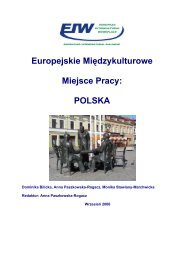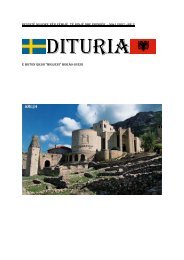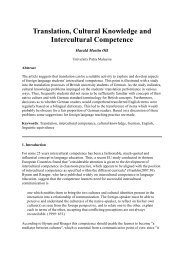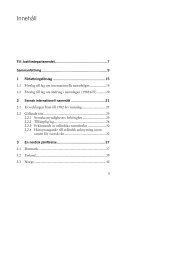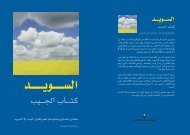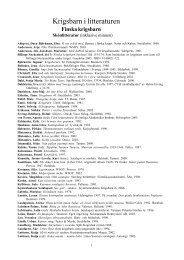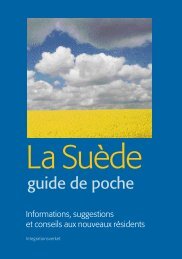Sweden
Sweden
Sweden
Create successful ePaper yourself
Turn your PDF publications into a flip-book with our unique Google optimized e-Paper software.
<strong>Sweden</strong> – a pocket guide 141<br />
Different types of child care are available for children of<br />
different ages. The youngest children are cared for at preschools,<br />
sometimes called dagis or day nurseries, and family<br />
day nurseries. Children who are at home with their<br />
parents can go to open pre-schools, öppna förskolor*.<br />
Slightly older children attending pre-school or school<br />
classes are provided with child care at recreation centres or<br />
family day nursery. These are intended as a complement<br />
to the schools and provide children with meaningful leisure<br />
time and support in their development. Open leisure<br />
activities, öppen fritidsverksamhet*, are available to children<br />
between ten and twelve years of age.<br />
Young children<br />
Pre-schools have trained personnel and are usually open<br />
year round. At family day nurseries, one adult takes several<br />
children into his or her home and keeps them occupied<br />
during the day. They are known as child-minders or “day<br />
mothers”. Both pre-schools and family day nurseries try to<br />
adapt their hours of opening to meet the needs of parents<br />
and children.<br />
Most pre-schools are municipally run, with a staff<br />
employed by the municipality. There are also parental cooperative,<br />
föräldrakooperativa*, pre-schools, which are<br />
owned and operated by parents with grant money from the<br />
municipality, and staff co-operative, personalkooperativa,<br />
pre-schools, which are owned and operated by the staff,<br />
also with grant money from the municipality. Some preschools<br />
employ special teaching methods, pedagogik*.<br />
Others have a religious affiliation. At some pre-schools, a<br />
language other than Swedish is spoken; some childminders<br />
know other languages, too. Some municipalities have preschools<br />
where the children learn several languages.<br />
Contact the municipality to find out whether child care<br />
is available in your native language.<br />
öppen förskola:<br />
premises with<br />
trained personnel<br />
where stay-athome<br />
parents<br />
can take their<br />
children.<br />
öppen<br />
fritidsverksamhet:<br />
premises with<br />
adult staff where<br />
schoolchildren<br />
between ten and<br />
twelve can come<br />
after school. They<br />
can buy snacks<br />
and there are<br />
also games and<br />
toys.<br />
kooperativ:<br />
jointly owned<br />
and operated by<br />
several people.<br />
pedagogik:<br />
the method<br />
used for teaching<br />
other people.<br />
The phrase is<br />
also used in<br />
the sense of<br />
“science of<br />
education and<br />
upbringing”.<br />
Child care



